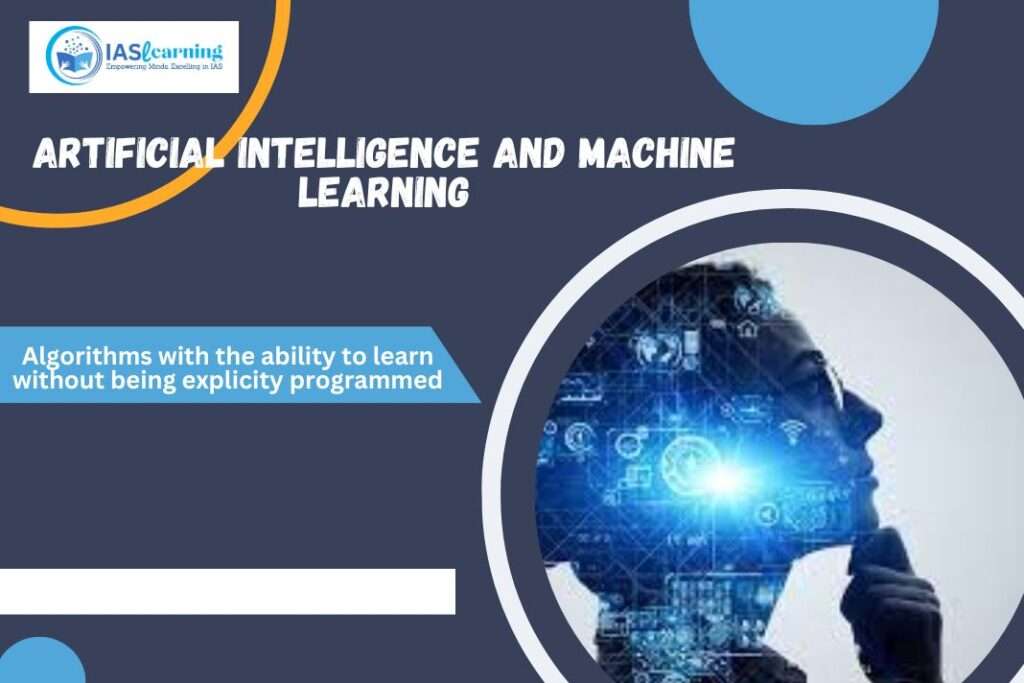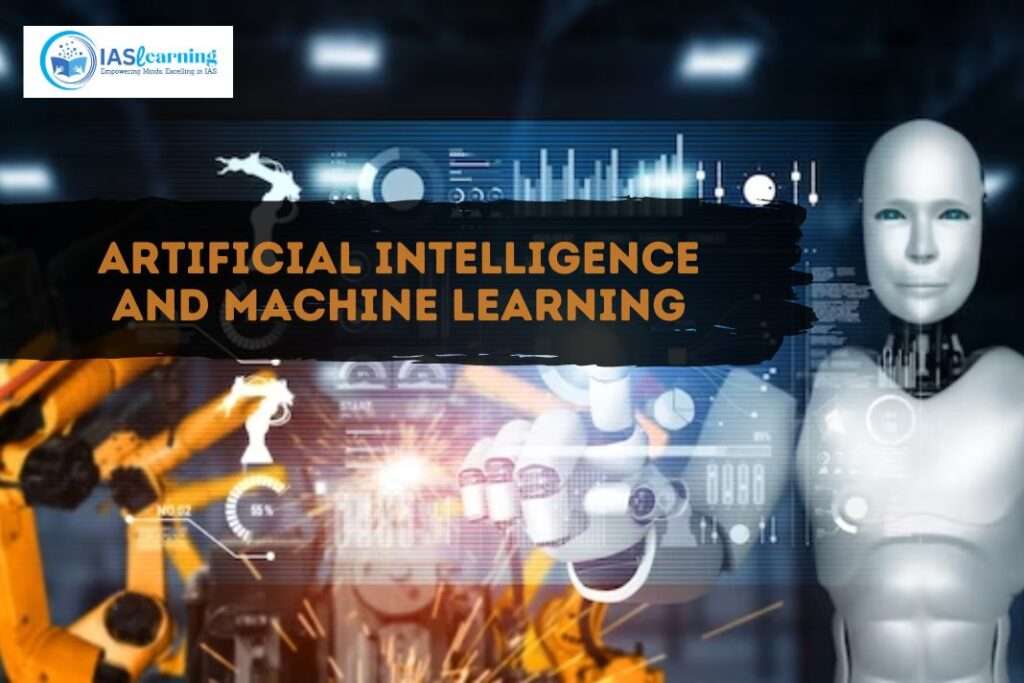Artificial Intelligence and Machine Learning
About Artificial Intelligence
- Artificial Intelligence:
- The study of technologies used to create machines and computers that can mimic cognitive processes connected to human intelligence, such as seeing, understanding, and responding to spoken or written language, analyzing data, making recommendations, and more, is known as artificial intelligence.
- Although it is sometimes assumed that artificial intelligence is a system unto itself, it is really a collection of technologies that are integrated into a system to allow it to reason, learn, and act in order to resolve a complicated problem.
- Machine Learning:
- AI is revolutionizing various industries, from healthcare and finance to transportation and entertainment. It has the potential to enhance efficiency, accuracy, and productivity across a wide range of applications. Machine learning, a subset of AI, enables computers to improve their performance on tasks through iterative learning from data, making AI systems increasingly sophisticated over time.
- The implications of AI are profound, with discussions surrounding its ethical, societal, and economic impacts. While AI promises numerous benefits, it also raises questions about job displacement, privacy, and bias in algorithms. To navigate this transformative technology, it’s essential to stay informed about the latest AI developments and their implications for our world.
- A type of artificial intelligence called machine learning makes it possible for machines and systems to autonomously learn from their experiences and advance. Machine learning employs algorithms rather than explicit programming to evaluate massive volumes of data, gain knowledge from the findings, and then make judgments.
- As they are trained—exposed to more data—machine learning algorithms get better over time. The result of executing an algorithm on training data are machine learning models, which represent what the computer learns. The model will improve as more data are utilized.

- Benefits of using AI and ML together
- Organizations of all sizes may benefit greatly from AI and ML, and new opportunities are continually opening up.
- Automated and intelligent systems are especially important as data volume and complexity increase because they enable businesses to automate processes, unlock value, and produce actionable insights to improve results.
Business benefits of using artificial intelligence and machine learning:
- Wider data ranges: Analyzing and activating a wider range of unstructured and structured data sources.
- Faster decision-making: Improving data integrity, accelerating data processing, and reducing human error for more informed, faster decision-making.
- Efficiency: Increasing operational efficiency and reducing costs.
- Analytic integration: Empowering employees by integrating predictive analytics and insights into business reporting and applications
Applications of AI and ML
Artificial intelligence and machine learning can be applied in many ways, allowing organizations to automate repetitive or manual processes that help drive informed decision-making.
- Healthcare: AI can help with medication discovery, medical diagnostics, and individualized treatment strategies.
- Finance: ML is used for risk evaluation, algorithmic trading, fraud detection, and credit scoring.
- Autonomous Vehicles: By analyzing sensor data and making judgments in real time, AI and ML enable self-driving automobiles.
- Natural Language Processing (NLP): NLP enables sentiment analysis, language translation, and virtual assistants.
- E-commerce uses AI to power chatbots, recommendation systems, and customer behavior research.
- Manufacturing: Automation, predictive maintenance, and quality control powered by AI increase productivity.

Challenges and Things to Think About
- Data Quality: Since ML models rely significantly on data quality, it is crucial to have clean, accurate data.
- Fairness and Bias: Models may produce results that are unfair or biased based on the data they were trained on.
- Ethics and privacy: AI applications pose questions regarding data security, privacy, and possible technological abuse.
- Interpretability: Complex models may not be transparent, which makes it difficult to comprehend how they make decisions.
- Continuous Learning: To retain accuracy, ML models must adjust to and learn from changing data.
- Read morehttps://en.wikipedia.org/wiki/Artificial_intelligence
- For More Detailshttps://iaslearning.in/
